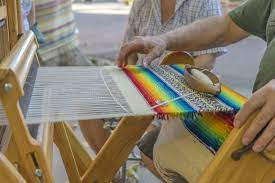
Ethiopia, with its rich traditional and historical tourist destinations, has offered the world various heritages. It’s a recent phenomenon that it has inscribed the Ethiopian Epiphany (the baptism of Christ) festival in intangible heritages under UNESCO.
Amongst the well celebrated holiday/festivals in Ethiopia, especially in the Ethiopian Orthodox church, is the Ethiopians Christmas or also known as ‘Genna’. The festival has religious as well as traditional features.
As the country follows its own calendar, Ethiopians celebrate ‘Genna’ – the birth of Jesus Christ – on the 7th of January, almost two weeks after the rest of the world mark the day.
Many people take part in a special Advent fast during the 43 days before Christmas. It starts on 25th November and is known as the ‘Fast of the Prophets’ (‘Tsome Nebiyat’). During this time, traditionally only one vegan meal is eaten each day, various sources indicate.
In the eve of ‘Genna’, the faithful, dressing white traditional cloths, gather at churches for the mass church services that start after midnight and lasts in the morning of Christmas day.
The ceremony of the mass service is similar in every Orthodox Church except the one held at the rock-hewn churches of Lalibela, where the celebration is unique.
Given the fact that King Lalibela same birth date with Jesus, ‘Genna’ has a unique celebrations in Lalibela, which is one of the oldest towns in Ethiopia located in the Northern part of the country. The rock-hewn churches of Lalibela, which are carved out of rocks in the 12th century, are amongst the heritages of the country that is inscribed by UNESCO as world heritages.
The mass held in Lalibela for Christmas is truly unique. Dozens of priest, dressed with white traditional clothes and turbans, and long crosses, form a circle at the top and bottom of the monolithic churches. They sing a spiritual song called “Beza Kulu Le’alem, Yom Tewelede” in Ge’ez language, which means “the savior of the world is born
today”, using “Kebero”, which is traditional instrument similar to drum.
The spirituality, originality, and historicity of the overall ceremony in Lalibela fill one’s heart with a joy of wonder, admiration and respect, not only the followers of the church but also visitors. That is why; thousands of tourists dare to join the faithful in the Christmas celebration.
The other ceremony which makes the ‘Genna’ festival attractive is ‘Yágenna Chewata’. It is an Ethiopian traditional game which is similar to field Hockey, played during Christmas season.
‘Yágenna Chewata’, often shortened to ‘Genna’, is played with much enthusiasm among the youths with the elders acting as referees. It is claimed that when the shepherd heard about the birth of Christ, they were joyful and so ecstatic, they started playing the game with their sticks and staff. The game is mostly started in the afternoon and could last until the sun sets.
Ethiopia’s holiday season continues as twelve days after ‘Genna’, on 19th January, Ethiopians start the three day celebration of ‘Timket’, which celebrates the baptism of Jesus.
The Ethiopian Herald January 8, 2020
COMPILED BY BETHLEHEM BEDLU




